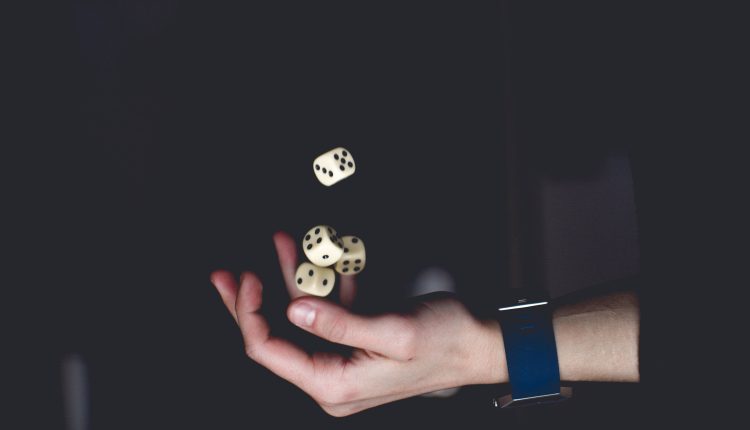
Impulse control disorders: what they are, how to treat them
Impulse Control Disorders are a recently recognized diagnostic category. Disorders such as pathological gambling, pyromania, kleptomania, and intermittent explosive disorder have only been diagnosed with DSM III (American Psychiatric Association, 1980)
Only seven years later, in DSM III–R (American Psychiatric Association, 1987), trichotillomania was also recognized as a diagnostic value.
Impulse Control Disorders are generally characterized by the individual’s inability to resist an impulse or a compelling temptation
This drive induces the subject to carry out a dangerous action for themselves and/or for others and is preceded by a feeling of growing tension and excitement followed by pleasure, gratification, and relief (DSM-IV-TR, 2004 ).
Usually the action is followed by a feeling of remorse, self-blame, or guilt.
- As listed above, the diagnostic group of impulse control disorders includes gambling (characterized by recurrent and persistent maladaptive gambling behavior);
- pyromania (characterized by the habit of starting fires for pleasure, gratification, or relief of tension);
- kleptomania (characterized by the recurring inability to resist the urge to steal objects that have no personal use or commercial value); intermittent explosive disorder (consisting of occasional episodes of inability to resist aggressive impulses and causing serious assaults or destruction of property);
- trichotillomania (characterized by the recurrent plucking of hair for pleasure, gratification, or relief of tension and causing a marked loss of hair) and impulse control disorder not otherwise specified (NOS) included to code disorders of control of pulses that do not meet criteria for any of the specific disorders described above.
Although not listed in the Diagnostic Manual of Mental Disorders, there is currently a tendency to include Compulsive Shopping Disorder, Internet Addiction, and Sexual Addiction as Impulse Control Disorders.
This is due to some characteristics common to this class of disorders, such as the tension that precedes the implementation of the behavior, the search for immediate gratification, and the inability to bear the frustration deriving from avoiding such behavior.
Impulse control disorders can minimally benefit from pharmacological therapies based on SSRI antidepressants and/or mood stabilizers, which favor the control of impulsivity.
Nonetheless, the treatment of choice is cognitive behavioral psychotherapy, which usually manages to drastically reduce symptoms in a relatively short time.
Read Also
Emergency Live Even More…Live: Download The New Free App Of Your Newspaper For IOS And Android
What Is OCD (Obsessive Compulsive Disorder)?
Nomophobia, An Unrecognised Mental Disorder: Smartphone Addiction
Impulse Control Disorders: Ludopathy, Or Gambling Disorder
Gambling Addiction: Symptoms And Treatment
Alcohol Dependence (Alcoholism): Characteristics And Patient Approach
Exercise Addiction: Causes, Symptoms, Diagnosis And Treatment
Schizophrenia: Symptoms, Causes And Predisposition
Schizophrenia: What It Is And What The Symptoms Are
From Autism To Schizophrenia: The Role Of Neuroinflammation In Psychiatric Diseases
Schizophrenia: What It Is And How To Treat It
Schizophrenia: Risks, Genetic Factors, Diagnosis And Treatment
Bipolar Disorder (Bipolarism): Symptoms And Treatment
Psychosis (Psychotic Disorder): Symptoms And Treatment
Hallucinogen (LSD) Addiction: Definition, Symptoms And Treatment
Compatibility And Interactions Between Alcohol And Drugs: Useful Information For Rescuers
Fetal Alcohol Syndrome: What It Is, What Consequences It Has On The Child
Do You Suffer From Insomnia? Here’s Why It Happens And What You Can Do
What Is Body Dysmorphic Disorder? An Overview Of Dysmorphophobia
Erotomania Or Unrequited Love Syndrome: Symptoms, Causes And Treatment
Recognising The Signs Of Compulsive Shopping: Let’s Talk About Oniomania
Web Addiction: What Is Meant By Problematic Web Use Or Internet Addiction Disorder
Video Game Addiction: What Is Pathological Gaming?
Pathologies Of Our Time: Internet Addiction
When Love Turns Into Obsession: Emotional Dependency
Internet Addiction: Symptoms, Diagnosis And Treatment
Porn Addiction: Study On The Pathological Use Of Pornographic Material
Compulsive Shopping: Causes, Symptoms, Diagnosis And Treatment
Facebook, Social Media Addiction And Narcissistic Personality Traits
Developmental Psychology: Oppositional Defiant Disorder
Pediatric Epilepsy: Psychological Assistance
TV Series Addiction: What Is Binge-Watching?
The (Growing) Army Of Hikikomori In Italy: CNR Data And Italian Research
Anxiety: A Feeling Of Nervousness, Worry Or Restlessness
Anorgasmia (Frigidity) – The Female Orgasm
Body Dysmorphophobia: Symptoms And Treatment Of Body Dysmorphism Disorder
Vaginismus: Causes, Symptoms, Diagnosis And Treatment
Premature Ejaculation: Causes, Symptoms, Diagnosis And Treatment
Sexual Disorders: An Overview Of Sexual Dysfunction
Sexually Transmitted Diseases: Here’s What They Are And How To Avoid Them
Sexual Addiction (Hypersexuality): Causes, Symptoms, Diagnosis And Treatment
Sexual Aversion Disorder: The Decline In Female And Male Sexual Desire
Erectile Dysfunction (Impotence): Causes, Symptoms, Diagnosis And Treatment
Erectile Dysfunction (Impotence): Causes, Symptoms, Diagnosis And Treatment
Mood Disorders: What They Are And What Problems They Cause
Dysmorphia: When The Body Is Not What You Want It To Be
Sexual Perversions: Causes, Symptoms, Diagnosis And Treatment



